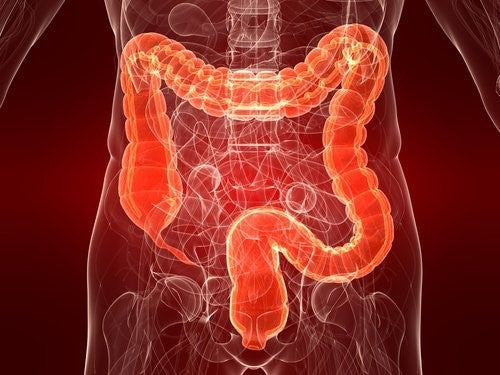Source: Thailand Medical News Aug 12, 2019 6 years, 4 months, 2 weeks, 5 hours, 56 minutes ago
There is currently no cure for the more than 62 million people in the world living with Crohn's disease (CD) and its symptoms, including abdominal pain, intestinal distress and severe weight-loss. CD is a form of inflammatory bowel disease (IBD) in which the body's own immune system attacks the gastrointestinal tract, and treatment is focused on controlling the symptoms of the disease as there is no cure to date.

However, researchers at Case Western Reserve University School of Medicine recently made an interesting discovery that could pave the way for a cure of the disease as they had manage to identify a pathway in the immune system activated in Crohn’s disease.
The three year old study involving animal models of Crohn’s disease, investigated the interaction between a class of proteins called tumor necrosis factor and receptors on the surface, called Fn14. The researchers’ goal was to see how the tumor necrosis factor (or TWEAK, for Tumor Necrosis Factor-like Weak Inducer of Apoptosis) and its cell receptor, Fn14, may play a dual role of both protecting the intestine from acute and chronic inflammation characteristic in Crohn’s Disease , and how it might also trigger it. Scientists have been studying the TWEAK/Fn14 interaction for at least 20 year to decipher its role in inflammation. The team from Case Western University were the first to discover the details of this signaling complex in Crohn’s Disease.
Lead researcher, Professor Dr Fabio Cominelli who also holds the position as chief of gastroenterology at University Hospitals Cleveland Medical Center told Thailand Medical News in an exclusive phone interview, "During early inflammation, TWEAK/Fn14 activates to heal tissue damage. However, during later, chronic inflammation, increased and persistent levels of Fn14 may lead to pathologic inflammation and fibrosis."
Current treatments for Crohn’s disease, such as steroids and monoclonal antibodies, may work for a while, but often cease to be effective. They also may cause side effects such as hypertension, infection and the risk of birth defects in pregnant women being treated for IBD. As Crohn’s disease patients endure constant fluctuations of flare-ups, repeated hospital stays, surgeries and treatments relieved by intervals of remission, the disease becomes dramatically life-changing and emotionally stressful.
To study the link between TWEAK/Fn14 and chronic inflammation, the researchers used animal models bred to develop Crohn’s-like disease, and then genetically deleted the cell-surface receptor Fn14. The animal models with genetically deleted Fn14 had less severe inflammation. Those with the Fn14 receptor had chronic intestinal inflammation and scarring.
To further evaluate whether their findings in animal models could be meaningful to Crohn’s disease in humans, the team then used molecular diagnostics to analyze resected intestinal tissues from patients with and without IBD. The results showed significant TWEAK/Fn14 overexpression in tissue from patients with CD. The team believes that blocking Fn14 pharmacologically using new pharmaceutical drugs and antibodies may ameliorate the inflammation and fibrosis in CD.
The study could have significant implications for cancer treatment as well. According to Cominelli, since chronic inflammation can lead to the initiatio
n and growth of tumors in patients with IBD, those patients are exposed to a risk of developing colorectal cancer that is directly proportional to the extent and duration of their disease. This discovery could lead to more research and the development of new drugs that could save many lives.
Reference: Luca Di Martino, Abdullah Osme, Sarah Kossak-Gupta, Theresa T. Pizarro, Fabio Cominelli. TWEAK/Fn14 Is Overexpressed in Crohn’s Disease and Mediates Experimental Ileitis by Regulating Critical Innate and Adaptive Immune Pathways. Cellular and Molecular Gastroenterology and Hepatology, 2019; DOI: 10.1016/j.jcmgh.2019.05.009
